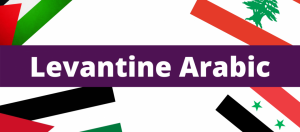Language/South-levantine-arabic/Grammar/Give-your-Opinion
Hi South Levantine Arabic learners! 😊
In this lesson, we will learn how to express opinions in South Levantine Arabic. Giving opinions is an essential part of communication, as it shows your thoughts and ideas about a specific topic. Besides, it can lead to interesting conversations and cultural exchange. Before we start, don't forget that learning a language involves both grammar and vocabulary. So, make sure to check the Grammar section and learn new words from our South Levantine Arabic vocabulary. Alright, let's dive in. 😎
Consider broadening your understanding by checking out these related lessons: Plurals & Questions.
Expressing Opinion[edit | edit source]
To express your opinion in South Levantine Arabic, you simply say your statement followed by the phrase "أنا برأيي ana bi-rayyi" meaning "I think that" or "in my opinion". For example, if someone asks you about a movie you have watched, you can say "أنا برأيي الفيلم جيد ana bi-rayyi al-film jayyid" which means "I think (in my opinion) the movie is good".
Another way of expressing an opinion in South Levantine Arabic is by using the verb "think" or "believe". To do so, use the verb "أظن ʾaẓun" for "think" and "أعتقد ʾaʿtaqid" for "believe" before your statement. For example, to express your opinion about the weather, you can say "أظن الجو حار ʾaẓun al-jaw ḥār" which means "I think the weather is hot".
Agreeing and Disagreeing[edit | edit source]
Now, let's see how to agree or disagree with someone's opinion in South Levantine Arabic. Here are some useful expressions you can use:
- Agreeing:
* "موافق mawāfiq" meaning "agree": used standalone to express agreement. * "أنا معك ana maʿak" meaning "I am with you": used to show your support. * "صحيح sḥiḥ" or "صح sḥa" both meaning "right" or "true": used to express your agreement.
- Disagreeing:
* "لا أوافقك la ʾawāfiqak" meaning "I do not agree with you": used to politely disagree with someone. * "أنا ضدك ana ḍiddak" meaning "I am against you": used to express a strong disagreement. * "خطأ xṭaʾ" or "خطأ مطبعي xṭaʾ muṭbaʿī" both meaning "incorrect" or "wrong": used to express that you disagree with someone's statement.
Example Dialogue[edit | edit source]
- Person 1: "أنا برأيي الكتاب ممتع ana bi-rayyi al-kitab mumtiʿ" ("I think (in my opinion) the book is enjoyable")
- Person 2: "صحيح، أنا معك sḥiḥ, ana maʿak" ("Right, I am with you")
Interesting Facts[edit | edit source]
Did you know that in South Levantine Arabic, opinions can be expressed softly and politely? It is common to use "ربما rabama" (meaning "maybe") or "بالتأكيد biltakīd" (meaning "for sure") in a sentence when expressing an opinion. For example, you can say "ربما الطعام ليس جيدًا rabama al-ṭaʿām laysa jayyidā" which means "Maybe the food is not good" or "بالتأكيد سأحضر الحفلة biltakīd saʾaḥḍir al-ḥafla" which means "For sure, I will attend the party".
Talking about food, did you know that South Levantine Arabic cuisine is famous for its mezze? Mezze is a variety of small dishes, typically served as appetizers, and it can include hummus, baba ghanoush, tabouleh, and many other delicious dishes. If you want to know more about South Levantine Arabic culture and cuisine, you can find native speakers on Polyglot Club. Don't hesitate to ask any questions! 🍽️
➡ If you have any questions, please ask them in the comments section below.
➡ Feel free to edit this wiki page if you think it can be improved. 😎
Other Lessons[edit | edit source]
- How to Use Have
- Adjectives
- Conditional Mood
- How to Use Be
- Plurals
- Negation
- Pronouns
- Gender
- Questions

